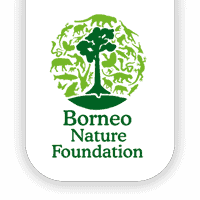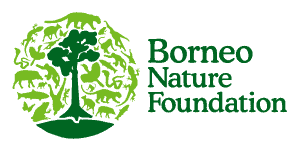The dry season has arrived. As in previous years, forest and land fire disasters begin in the dry season, threatening Central Kalimantan. In addition to flooding, forest and land fires are major disasters for the province.
According to data from SiPongi (Forest and Land Fire Monitoring System) by Indonesia Ministry of Environment and Forestry, in 2019 no less than 317,749 hectares of land in Central Kalimantan were burned down. Land clearing by burning is one of the repeated causes of disasters every year.
Therefore, the Borneo Nature Foundation’s (BNF) Community Development program uses several methods of community empowerment and education regarding land use, reducing the need to clear land by burning.
“The real goal is to increase public awareness so that they can use the land around their homes to produce food crops that can be consumed without opening new land,” said BNF Community Development Coordinator, Yuliana Nona.

Cultivation activities are carried out on residents’ own land. That way, they will have the desire to protect their own land from fires.
“For example, in Tambak Village, Banama Tingang Subdistrict, Pulang Pisau Regency, the land for the cultivation of the Kelulut honey bee is approximately one hectare, at least the residents will guard the land from fires because it becomes their place of business,” he added.
The number of bee farmers in Tambak Village has now reached 16 people; in fact, three of them have already developed hives in their yard. Bees are obtained directly from nature but not damaging the hive (the tree is not cut down) and taking the bees in moderation. In the vicinity of the cultivation site, it is not recommended to use chemicals or burn the land because it will cause the bees to escape from the cultivation box. And it is advisable to plant vegetation that flowers and bears fruit as Kelulut bee feed. It is intended that the value of conservation remains upheld so that the results can still be obtained sustainably.

Photo by Yuliana Nona | BNF
Nona said, for the temporary permaculture garden this was done around the house in order to foster community independence for food security. Currently, many food ingredients, such as vegetables, are obtained by buying, while by growing their own in the yard of the house, residents do not need to buy anymore.
Local seedlings distributed to the community are local seeds that are purchased directly from Gunung Mas farmers. As for fertilizer, the community is taught to make liquid compost from leaves, banana stems and organic waste around the residents’ homes.
Permaculture Gardens were started in 2019 supported by CISU (Civil Society in Development) and the Rainforest Trust. In the permaculture program, they are also making ponds. In the Panjehang region, Pulang Pisau, for example, there are 14 families with a total of 13 ponds that have been successfully developed, in the form of siring with a pool size of 2×3 to 4×6 meters. Meanwhile, in the Petuk Barunai area, there are 27 soil ponds that were successfully developed.
“BNF provides food and fish, with catfish from 4-5 cm in size, in particular, the amount is around 200-300 fish depending on the area of the pond made by the community,” said Nona.
Through the program of developing permaculture gardens and cultivation of fish ponds and Kelulut honey, it is hoped that the community can be more independent in their daily food supply. In addition, they are also expected to become more concerned about protecting their land from fires.
Written by BNF’s Content Creator: Yohanes Prahara


